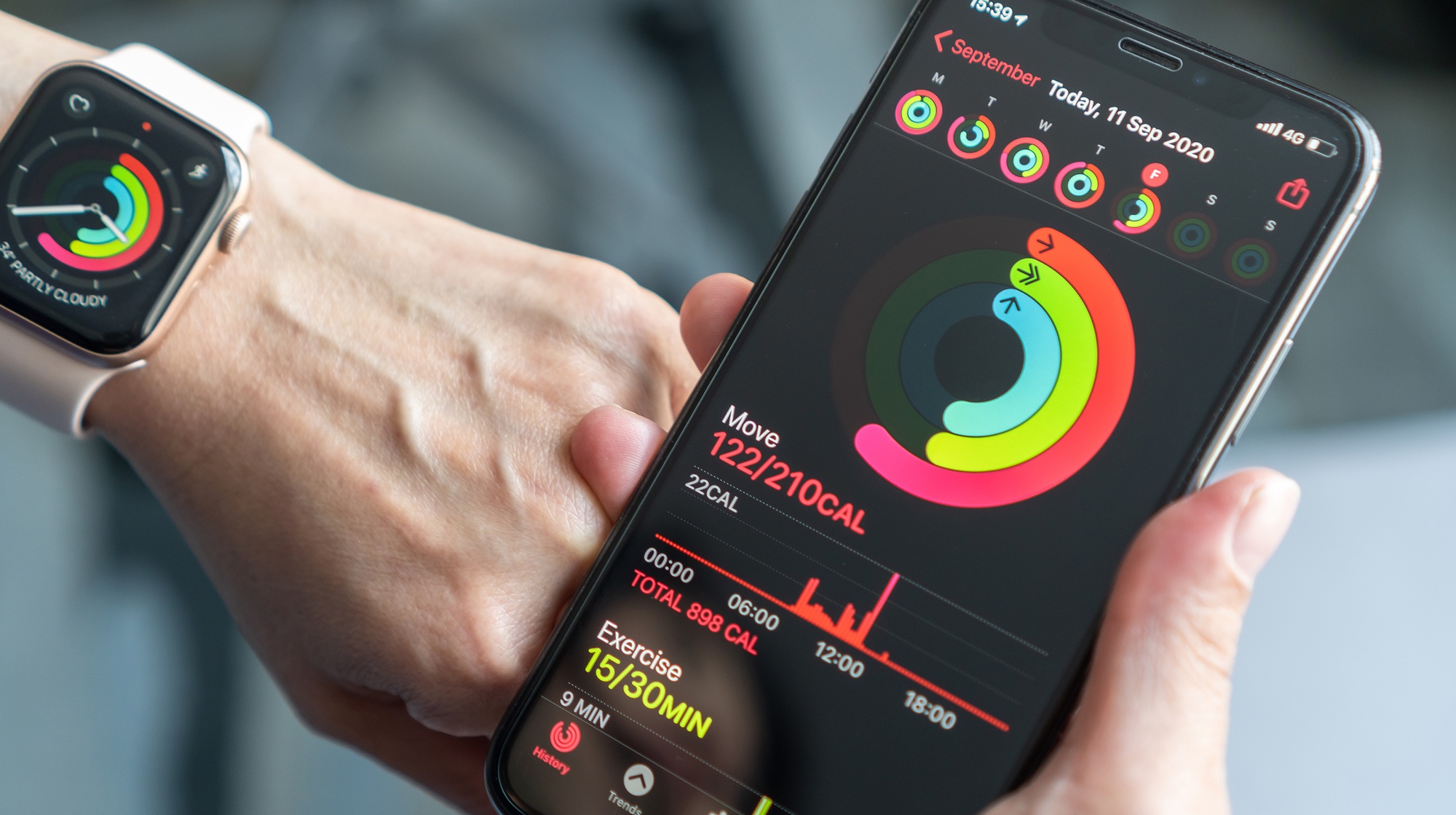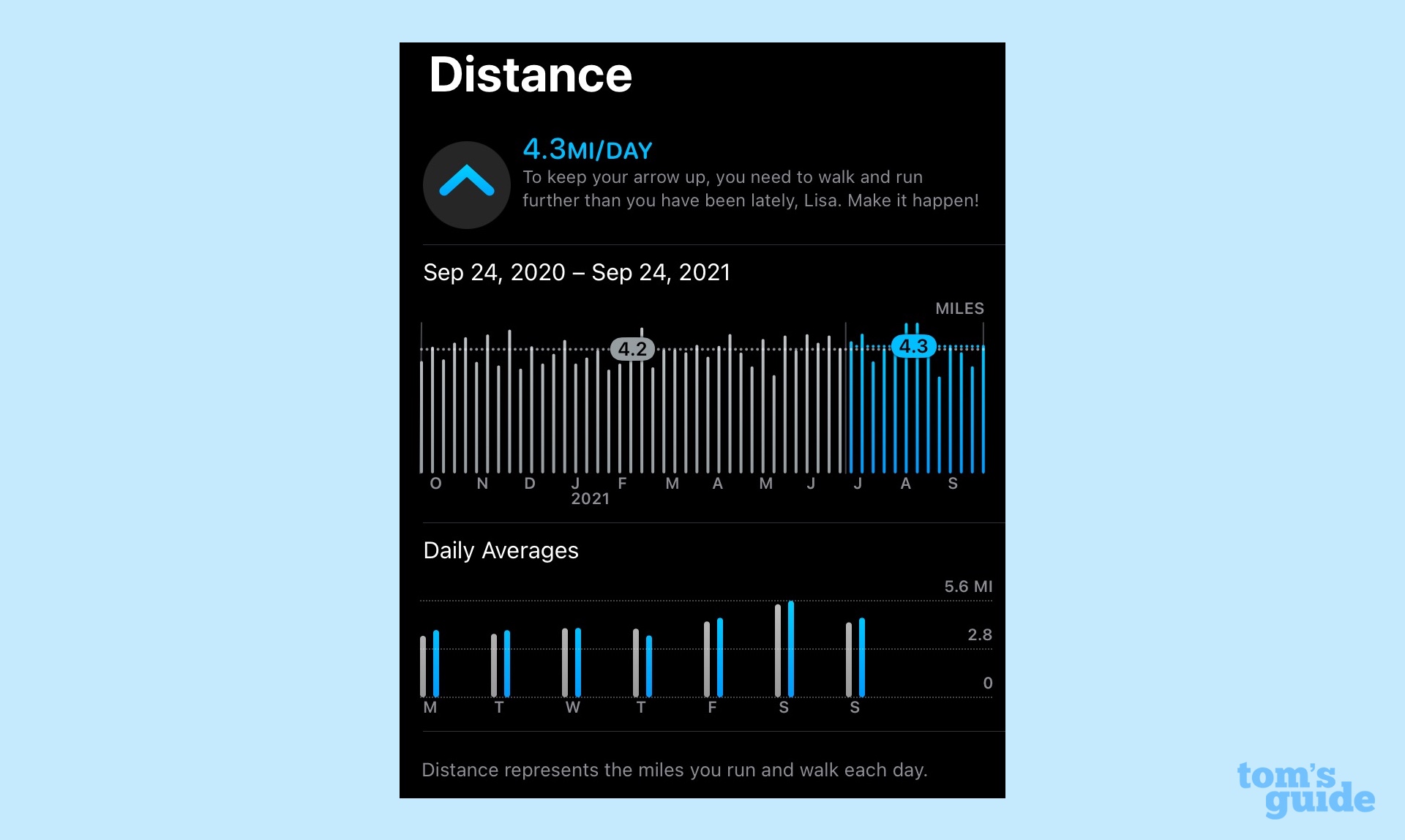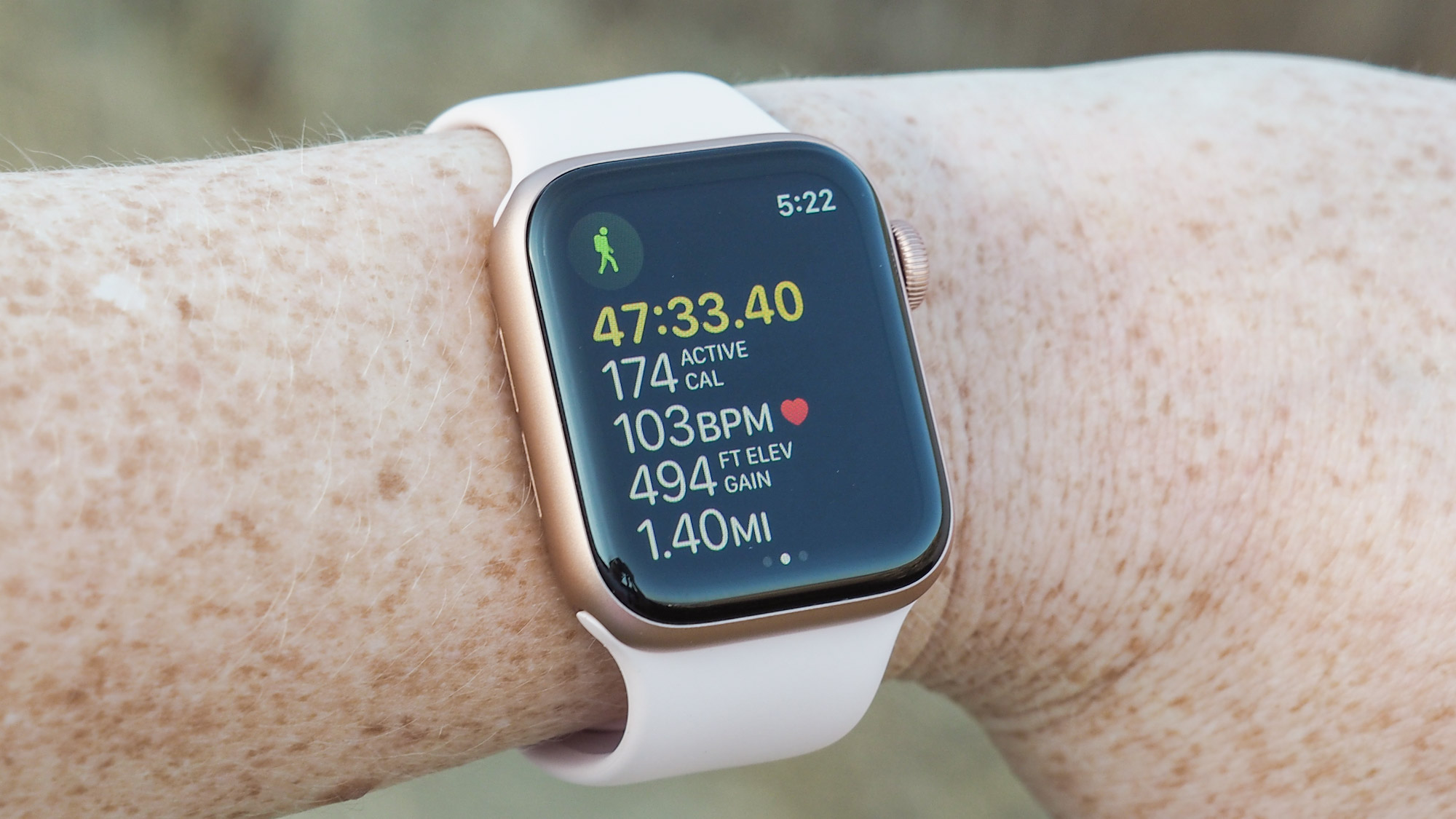My love-hate relationship with the Apple Watch is turning to hate
The Fitness app sends people the wrong message about getting healthy

Here at Tom’s Guide our expert editors are committed to bringing you the best news, reviews and guides to help you stay informed and ahead of the curve!
You are now subscribed
Your newsletter sign-up was successful
Want to add more newsletters?

Daily (Mon-Sun)
Tom's Guide Daily
Sign up to get the latest updates on all of your favorite content! From cutting-edge tech news and the hottest streaming buzz to unbeatable deals on the best products and in-depth reviews, we’ve got you covered.

Weekly on Thursday
Tom's AI Guide
Be AI savvy with your weekly newsletter summing up all the biggest AI news you need to know. Plus, analysis from our AI editor and tips on how to use the latest AI tools!

Weekly on Friday
Tom's iGuide
Unlock the vast world of Apple news straight to your inbox. With coverage on everything from exciting product launches to essential software updates, this is your go-to source for the latest updates on all the best Apple content.

Weekly on Monday
Tom's Streaming Guide
Our weekly newsletter is expertly crafted to immerse you in the world of streaming. Stay updated on the latest releases and our top recommendations across your favorite streaming platforms.
Join the club
Get full access to premium articles, exclusive features and a growing list of member rewards.
There's a lot to love about the Apple Watch -- the quick and easy text notifications, being able to use it as a timer and stopwatch, the discreet map navigation it allows for when I’m in a new place, taking and receiving phone calls on it like I'm James Bond.
But one application on the watch — the one which made the watch-wearing experience compulsively addictive — may actually drive me to give up the whole thing. I'm talking about the one-two hit of the Apple Watch and the Fitness app.
Why am I thinking of ditching a mostly-convenient device just because of one application? I'm at a point where the relationship I have with my watch is shot through with irritation and life is honestly too short to seethe every time I get an admonition to check my daily ring progress.
- Best workout apps: Try these fitness tools instead
- What to expect from the Apple Watch 7
- Plus: iPhone 13 has a problem — and there's no timetable for a fix
To give the infernal application-plus-watch duo some credit: it is good for developing a habit. The issue I have is that it's terrible for maintaining habits. The Fitness app is designed around rewarding a few core behaviors that do not, in any way, reflect the complicated realities of people who live in actual human bodies.
The trouble with Trends in Fitness
Forget the daily nagging reminders to stand up, move or move some more. The big tell is in the "Trends" panel on the Summary screen of the phone app. The app displays several different fitness metrics and puts a little arrow pointing up or down to indicate whether or not the trend is going in the correct direction. "Up" is always the correct direction.
The messaging rewards a more-is-more approach. Here's an example from my own dataset: My distance metric currently stands at an average of 4.3 miles walked per day, up from 4.2 miles per day for the first six months of the year. The caption appended to this data reads, "You're walking or running less recently, Lisa. To keep your arrow up, try to get moving a bit more!"

The Mayo Clinic estimates that the average American legs only 1.5 to 2 miles daily, so I'm arguably already above average, but to look at my Trends panel and get chided for not improving over my prior performance is a tad demoralizing.
Get instant access to breaking news, the hottest reviews, great deals and helpful tips.
The default approach in the Fitness app is that some improvement is good, but continuous improvement is even better. This is actually inimical to human health.
Take, for example, the Apple Watch-plus-Fitness approach to daily movement; there are at least three different weekly awards linked to never taking a day off. This is counter to decades of research demonstrating that rest days are actually vital to health, as they boost muscle recovery between workouts and prevent overuse injuries. But nobody responsible for the Fitness app recognizes this.
Unobtainable Fitness goals
While I'm on the topic of how irritating — and yet addictive —- the awards from the Fitness app are: the monthly goal awards the app sets are frequently arbitrary and unrealistic. The goals I've been given include things like walking an average of 8 miles daily or exercising for an average of 68 minutes daily. When I read the last one aloud in incredulity, my husband looked up from his phone and asked, "Does the watch not know you have a job?"
I'd be less salty about the monthly goals if I had any insight into how they're generated. The Fitness app is such a black box experience —- there's no telling what impels its messages to do more.

There's also no way to actually harness the watch and the Fitness app to meet any goals I set. I have a modest goal this year — swim 365,000 meters by Thanksgiving — and the only way I know I'm on track is that I take the swim workouts logged on my watch and enter the data into a spreadsheet that tallies how much I've swum since January 1, 2021. There is literally no reason why I shouldn't be able to set a goal within my Fitness app and have it log my progress or nudge me along. I've seen the app's capability for doing so when it's the one setting the goals; now let the users harness those features for their own goals.
Honestly, the Fitness app and the Apple Watch fail to genuinely serve user health in multiple ways. Weather conditions are always part of my workout data, but not once have I ever seen a warning that I'm exercising in unsafe conditions like excessive heat or an Air Quality Index above 200. Why not? The data is there thanks to the Weather app; wouldn't an app focused on improving health want to throw up reminders cautioning people to be as safe as possible when exercising?
I could, of course, reconfigure my watch preferences so I'm not using the Fitness app any more. But why should I have to deprive myself of the usefulness of a tool that worked all right in starting a habit? I just want the tool to be better for maintaining a habit -- and that includes considering the conditions that keep people healthy, like rest, weather conditions, or a sense of autonomy.
Fortunately, I have 64 days to decide what to do. You see, I gotta get that thousand-day streak badge.
 Club Benefits
Club Benefits










